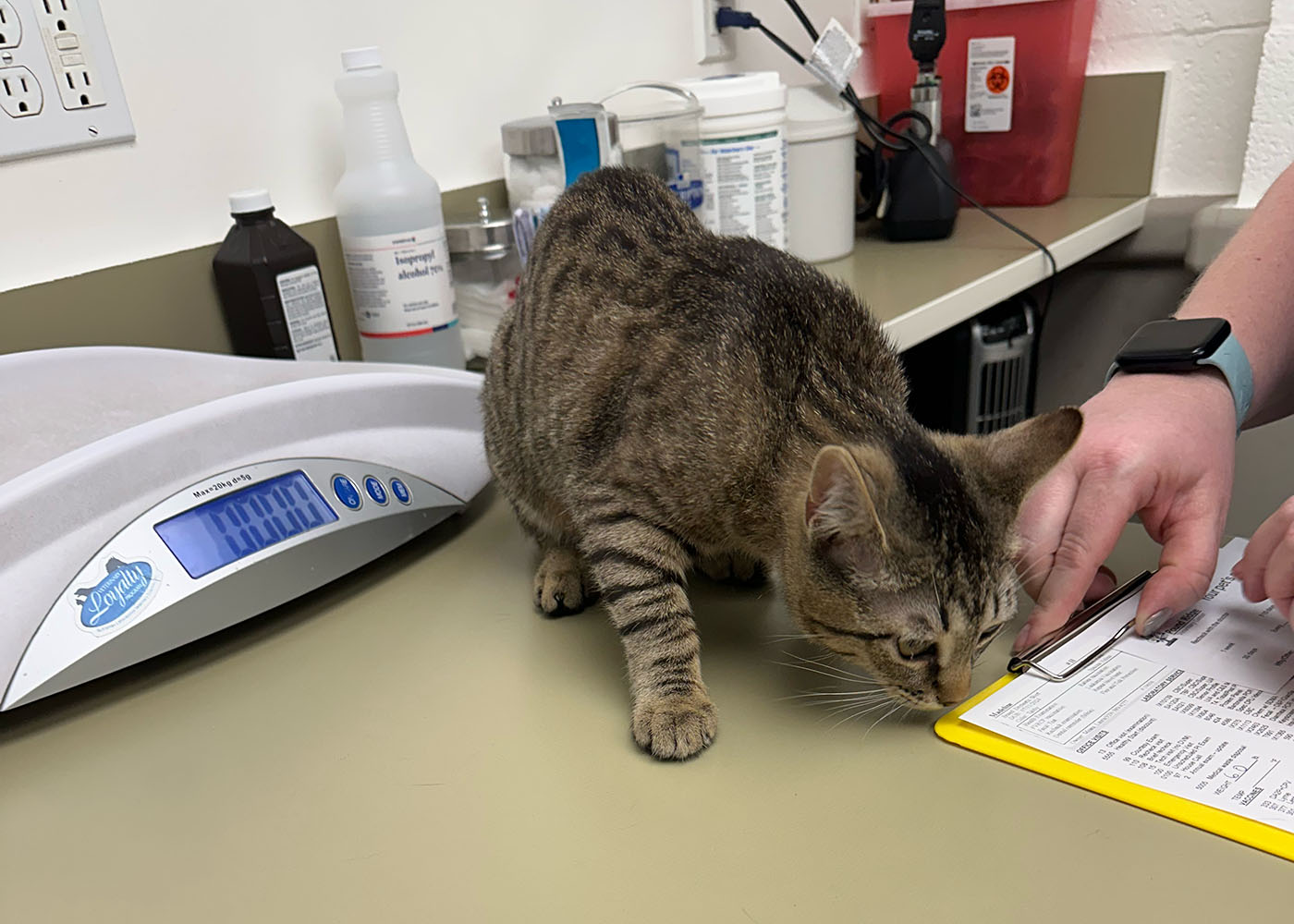Caring for a pet is a rewarding experience, but it also comes with unexpected challenges—especially when it comes to their health. Veterinary bills can quickly add up, whether due to sudden illnesses, accidents, or ongoing medical needs. That’s where pet insurance becomes invaluable. Just like health insurance for people, it helps cover the cost of medical care for your furry friend, ensuring they get the treatment they need without financial stress. From emergency surgeries to chronic conditions and even routine wellness visits (depending on the plan), the right coverage allows you to prioritize your pet’s well-being. With insurance in place, you can focus on giving your cat a happy, healthy life—without worrying about expensive vet bills derailing your budget.

Types of Pet Insurance
Accident Only Coverage
It can cover injuries caused by accidents, including cuts, broken bones, to swallowing foreign objects.
Accident & Illness Coverage
Accident-and-illness plans cover medical treatment for injuries and a range of illnesses, including infections, chronic conditions, cancer, arthritis, diabetes, allergies, and hereditary diseases, among others.
Wellness & Preventative Care Add-ons
Wellness plans reimburse pet owners for routine and preventive care. Typically offered as add-ons to other policies, they can sometimes be purchased separately. These plans may cover vaccinations, dental cleanings, annual checkups, and flea and tick treatments. Some even provide reimbursement for spay and neuter procedures.
What Pet Insurance does not cover?
Pet insurance typically does not cover the following:
- Pre-existing conditions – Any illness or injury your pet had before coverage began.
- Routine and preventive care – Unless included in a wellness add-on, things like vaccinations, flea/tick prevention, and annual exams are usually not covered.
- Elective procedures – Cosmetic surgeries like tail docking, ear cropping, or declawing (which it is banned in several cities and states across the U.S and it is a form of animal cruely).
- Breeding or pregnancy-related costs – Most policies exclude costs related to breeding, pregnancy, or birth.
- Behavioral issues – Training, therapy, or treatment for aggression or anxiety may not be included.
- Dental care – Some policies exclude dental cleanings and non-accident-related dental issues.
- Experimental treatments – Procedures or medications that are not widely accepted or proven.
- Hereditary or congenital conditions – Some policies exclude breed-specific conditions unless you opt for additional coverage.
- Alternative therapies – Acupuncture, chiropractic care, or hydrotherapy may not be covered unless explicitly included in the policy.
- Non-veterinary expenses – Things like food, supplements, boarding, or grooming are generally not covered.
Coverage varies by provider, so it’s always best to check the policy details before purchasing
If I have a breed cat, do I have to pay more?
Pet insurance companies may charge higher premiums for certain cat breeds. This is because some breeds are more prone to specific health issues, which can lead to higher veterinary costs. Factors that influence the cost of pet insurance for different breeds include:
- Genetic Health Risks – Breeds like Maine Coons and Ragdolls are more susceptible to heart disease, while Persians and Scottish Folds may have respiratory or joint issues.
- Size and Lifespan – Larger cats or those with shorter lifespans may have different coverage costs.
- Breed Popularity & Claims History – If a breed is commonly insured and has a history of frequent claims, insurance companies might adjust premiums accordingly.
If you’re considering pet insurance, it’s a good idea to compare different providers and plans to find the best coverage for your cat’s breed and needs.
I can't pay pet insurance; what can I do?
If pet insurance isn’t in your budget, there are still ways to manage your cat’s healthcare costs:
- Start a Pet Savings Fund – Set aside a small amount each month for vet expenses to help cover emergencies.
- Look for Low-Cost Vet Clinics – Many animal shelters and nonprofit organizations offer affordable vaccinations, check-ups, and spay/neuter services.
- Ask About Payment Plans – Some veterinarians offer flexible payment options or financing programs like CareCredit to help with big bills.
- Consider a Veterinary Discount Plan – Programs like Pet Assure provide discounts on vet visits without monthly premiums.
- Check for Charitable Assistance – Groups like the ASPCA, RedRover, and The Pet Fund offer financial aid for pet medical care in emergencies.
- Preventative Care – Keeping up with vaccinations, dental care, and regular check-ups can help avoid expensive health issues down the road.
Before adopting any pet, it’s crucial to plan ahead. Pets rely on us completely for their well-being, and being a responsible pet parent means committing to their care for a lifetime. Thoughtful preparation ensures they receive the love, attention, and support they deserve. Remember, true love for a pet goes beyond affection—it includes responsibility, dedication, and providing a safe, happy home. Find more assistance resources below.
Financial Assistance Programs:
- Connecticut Humane Society’s Fox Memorial Clinic: Offers veterinary care to pet owners in financial need.
- Companions Assistance Program: Provides vouchers for veterinary care to Connecticut residents receiving public assistance.
- STARelief and Pet Assistance: Offers grants for emergency medical care and end-of-life services.
- CareCredit: A financing option that provides a revolving line of credit for veterinary expenses. We used their credit line for Toffee, Milka, and Mere’s treatments.
Additionally, organizations like the Pieper Veterinary Foundation assist low-income families with emergency veterinary care.
State-Specific Assistance on the East Coast:
New York
NYC Mayor’s Alliance for Animals – Helping Pets and People in Crisis – Offers resources for low-income pet owners.
Website: animalalliancenyc.org
PAWS NY (Pets Are Wonderful Support) – Assists elderly or disabled pet owners.
Connecticut
Connecticut Humane Society’s Fox Memorial Clinic – Low-cost veterinary services for qualifying pet owners.
STARelief and Pet Assistance – Provides grants for emergency vet care.
New Jersey
NJ SPCA Financial Assistance Program – Helps with medical expenses for pet owners in need.
Pennsylvania
Animal Care & Control Team of Philadelphia (ACCT Philly) – Offers low-cost veterinary services and emergency assistance.
The Sam’s Hope Fund – Provides financial aid for veterinary care and pet food.
Massachusetts
The Massachusetts Animal Fund – Offers spay/neuter vouchers and financial aid for pet medical care.
Merrimack River Feline Rescue Society (MRFRS) – Cat Mobile – Provides affordable veterinary care for cats.
Virginia
Virginia Pet Fund – Helps low-income pet owners afford emergency care.
The Mosby Foundation – Offers financial assistance for non-routine medical expenses.



